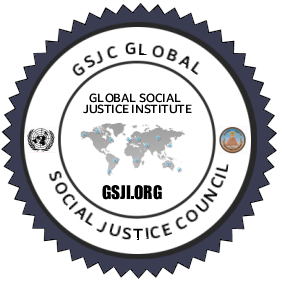GLOBAL SOCIAL JUSTICE INSTITUTE
3. What are human rights? Human rights are legally guaranteed by human rights law, protecting individuals and groups against actions which
interfere with fundamental freedoms and human dignity. They are expressed in treaties, customary international law,
bodies of principles and other sources of law. Human rights law places an obligation on States to act in a
particular way and prohibits States from engag- ing in specified activities. However, the law does not establish
human rights. Human rights are inherent entitlements which come to every person as a con- sequence of being human.
Treaties and other sources of law generally serve to protect formally the rights of individuals and groups against
actions or aban- donment of actions by Governments which interfere with the enjoyment of their human rights.
| ||
Virus Justice Italian Freedom Day J23 History of Racism Book-HR Join Commission Ethics Badges Site Map Education Policy Agenda Top Social Justice Issues Anti Slavery Book Truth and Justice Commission USA Ethnic Justice Truth and Justice Commission * Anti Slavery Society - Election Intrigrity George Mentz Colorado Springs Coronavirus Biden Fault Negligence |

